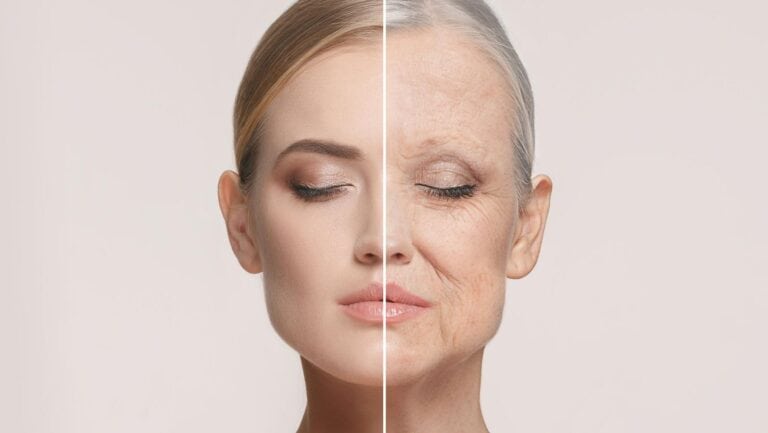14 habits women should quit for better health
Everyday habits like skipping meals, overusing caffeine, and ignoring checkups are quietly putting women’s long-term health at risk.
The small, everyday habits that build up over time sometimes in ways you don’t notice until they cause real problems. Many women assume that if nothing feels wrong, everything must be OK. However, the truth is that your body often whispers before it screams, and ignoring those whispers can make the road back to wellness much harder.
What makes these habits tricky is that they don’t always look harmful on the surface. Some even seem productive or harmless at first glance. Skipping meals because you’re “too busy,” relying on coffee to power through fatigue, or sitting for long stretches while working can feel like normal parts of a packed schedule. However, research shows that these daily choices can have a subtle yet significant impact on heart health, hormone balance, energy levels, and even long-term disease risk in ways you may not expect.
The challenge for many women is that life often pulls them in multiple directions at once: work, family, friendships, and personal goals. That pressure can lead to trade-offs where health slides down the priority list. According to a review by Polytechnique Insights, 44% of women admitted they put their family’s health ahead of their own. While that sacrifice may feel noble, it also means that harmful habits can go unnoticed for years, until the damage becomes harder to reverse.
Skipping Breakfast Too Often
It may seem like an easy way to save time or calories, but skipping breakfast regularly can disrupt your metabolism and blood sugar levels. ABC News reports that women who routinely skipped breakfast had a 20% higher risk of developing type 2 diabetes compared to those who ate it daily. Your first meal sets the tone for your energy and focus, and when it’s missing, it can lead to overeating later in the day.

Sitting for Long Periods
Spending hours glued to a desk or couch can do more harm than you think. A study published by the Jama Network found that prolonged sitting is linked to higher risks of cardiovascular disease and even early death, especially in women. Breaking up your day with standing, walking, or stretching every 30–60 minutes can improve circulation, boost energy, and help prevent long-term issues like poor posture and back pain.
Overdoing Caffeine
Coffee might feel like the ultimate survival tool for busy mornings, but too much can wreak havoc on sleep, digestion, and even anxiety levels. The FDA recommends no more than 400 milligrams of caffeine per day, which is approximately equivalent to about four cups of coffee. Yet studies show women often underestimate how much caffeine they consume when factoring in tea, soda, and energy drinks. Over-reliance can mask fatigue rather than fixing the root cause, leaving your body running on empty.
Not Strength Training
Many women stick to cardio for fitness and skip strength training, but that can hurt long-term wellness. Weight-bearing exercise is crucial for building bone density, especially after age 30 when bone mass begins to decline. The National Osteoporosis Foundation estimates that one in two women will break a bone due to osteoporosis in their lifetime. Incorporating strength training just two to three times per week can help protect against that risk while improving muscle tone and metabolism.
Poor Sleep Patterns
Cutting back on sleep often feels like the only way to fit everything into a packed day. But consistently sleeping less than seven hours raises the risk of heart disease, obesity, and weakened immunity. The CDC reports that nearly one in three adults in the U.S. doesn’t get enough sleep, with women disproportionately affected by insomnia and disrupted sleep cycles. Prioritizing a consistent bedtime routine can be as important as exercise or diet for long-term wellness.
Ignoring Stress Levels
Stress may feel like a regular part of life, but it takes a real toll on physical health. Chronic stress increases cortisol levels, which can contribute to weight gain, high blood pressure, and even menstrual irregularities. Women report higher levels of stress than men and are more likely to experience physical symptoms from it. Small daily practices like mindfulness, breathing exercises, or journaling can help keep stress from becoming damaging.

Drinking Too Little Water
Dehydration often flies under the radar because symptoms like fatigue or headaches are easy to blame on other causes. Yet water intake is crucial for digestion, skin health, and energy regulation. Experts recommend about 11 cups of fluids daily for women, but surveys suggest many fall short. Even mild dehydration can impact concentration and mood, which makes staying hydrated essential for both mental and physical wellness.
Over-Reliance on Processed Foods
Grabbing something packaged or pre-made can save time, but a diet heavy in processed foods often contains excess sodium, sugar, and preservatives. Studies have linked high consumption of ultra-processed foods to a greater risk of cancer, cardiovascular disease, and early death. Preparing simple whole-food meals, even a few times a week, can cut down on those risks and give your body the nutrients it actually needs to thrive.
Wearing Heels Too Often
High heels may look stylish, but frequent wear can cause long-term foot, knee, and back problems. Podiatrists warn that wearing heels puts unnatural stress on joints and muscles, and doing so daily can increase the risk of developing bunions, hammertoes, and arthritis. Alternating with supportive shoes and stretching your calves and feet can help reduce these risks while still letting you wear heels when you want to.
Neglecting Routine Screenings
Skipping doctor visits because you “feel fine” can mean missing early warning signs of serious conditions. Screenings like Pap smears, mammograms, and cholesterol checks are designed to catch issues before they become life-threatening. A lot of women skip recommended preventive care because of time, cost, or discomfort. Making these appointments a priority can be the difference between catching something early and facing a much harder road later.
Using Too Much Technology Before Bed
Scrolling on your phone or laptop before sleep might feel relaxing, but blue light exposure suppresses melatonin and disrupts your natural sleep cycle. A Harvard study found that people who used screens late at night took longer to fall asleep and felt more tired the following morning. Creating a screen-free wind-down routine, even 30 minutes before bed, can help improve sleep quality and overall energy.

Overcommitting Socially
Saying yes to every invite or responsibility can stretch you thin and leave little time for self-care. Social overcommitment often leads to exhaustion, resentment, and a lack of time for rest or personal goals. Protecting your time by setting boundaries doesn’t just preserve your mental health; it can also improve your physical well-being.
Avoiding Sun Protection
Many women forget to apply sunscreen unless they’re at the beach, but daily sun exposure can add up. UV rays can cause premature aging, dark spots, and increase the risk of skin cancer. Using sunscreen daily, even on cloudy days, offers long-term protection that your skin will thank you for.
Infrequent Mental Health Check-Ins
Mental wellness is often treated as separate from physical health, but the two are deeply connected. Ignoring symptoms of anxiety, depression, or burnout can make it harder to maintain healthy routines and relationships. According to the Office on Women’s Health, nearly one in five women experiences a mental health condition each year, yet many delay seeking help. Talking to a professional early can prevent small struggles from becoming overwhelming.
15 Things Women Only Do With the Men They Love

The 15 Things Women Only Do With the Men They Love
Love is a complex, beautiful emotion that inspires profound behaviors. We express our love in various ways, some universal, while others are unique to each individual. Among these expressions, there are specific actions women often reserve for the men they deeply love.
This piece explores 15 unique gestures women make when they’re in love. From tiny, almost invisible actions to grand declarations, each tells a story of deep affection and unwavering commitment.







